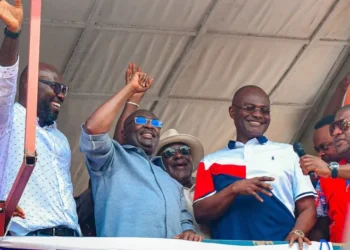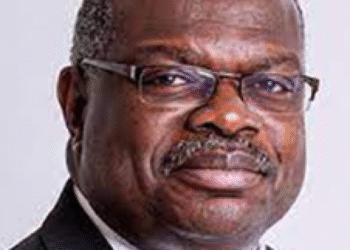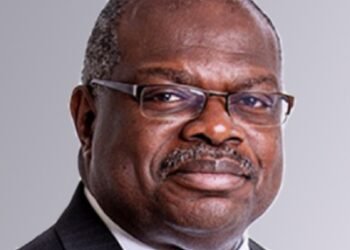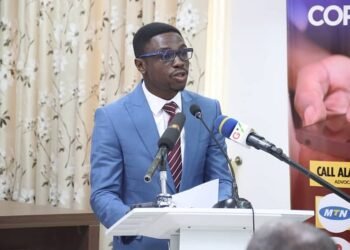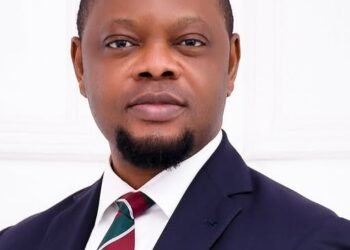A Senior Lecturer at the University of Ghana Business School and Health Economist with the Department of Public Administration and Health Services Management, Dr. Gordon Abekah-Nkrumah, has intimated that the National Democratic Congress’s (NDC) manifesto promise to reduce maternal mortality by 50% is not feasible.
According to a data from the health economist, from 2007 to 2017, maternal mortality was reduced to about 36%, an average of 21% per year. This, he said, was when Ghana had more resources poured into the sector by donors unlike today.
Per the Minister of Finance’s mid-year budget, Ghana was projected to grow at 6.8%, but now, is expected to grow at 0.9%. Currently, Ghana’s economy is at -3.4%. Questioning the status quo, Mr. Abekah quizzed, “where are we going to get the money to pour in, to be able to implement the reduction of mortality rate by 50%.”
Speaking on PM express manifesto tracker, Dr. Abekah revealed that, the fiscal integrity of the promise made in the manifesto by the NDC, to provide free primary health care, is a great initiative but, how financially feasible will this project be? He questioned.
According to him, the free primary healthcare project will cost between USD 1.5 billion to above USD 2.3 billion but, the project’s annual revenue from the National Health Insurance Levy (NHIL) will be below the cost.
Touching on NPP’s manifesto, the manifesto stated that, there will be an increment in coverage under the National Health Insurance Scheme to cover preventive and promotive services, which Dr. Abekah Nkrumah also applauded as a great idea, but the Health Economist quizzed about the resources to be used for the project.
“Under the current coverage, which is much lower, the scheme was indebted; that is before 2017, it was an average of 7 months. Now, we are hovering between 3 to 4 months and we are still indebted to these facilities. So, you opening it, means there will be more cost. At a point, where we are going to grow less, and money coming in will be less? Sometimes, I ask myself, is it that people haven’t seen that COVID really has effect on our revenue.”
Dr. Abekah- Nkrumah further reiterated that, priomises made in the health sector of the manifestos of the leading opposition party, National Democratic Congress (NDC) and incumbent, New Patriotic Party (NPP), are both technically feasible to but, some of the programmes proposed will have capacity challenges to implement.
Measuring some of the key promises as against capacity challenge, Dr. Abekah-Nkrumah stated that, though the NPP and the NDC said it will build additional medical school facilities and turn all regional hospitals into tertiary hospitals, Ghana has a capacity deficit to man these infrastructural projects.
“Like I said, technically, it is feasible to put all these things there. Just like we put Bank of Ghana, University of Ghana Medical School (UGMC), the Upper West Regional hospital and all these structures all over the place. The point here is that, if you turn all regional hospitals into tertiary hospitals, what it means is that, you will need a certain caliber of personnel to be able to man them.
“Where are they? I will give you a typical example. Every man or male; 40 years and above, is a potential neurological candidate. Yet, we do not have up to 50 neurologists in Ghana. So, where are you going to get the people to run these tertiary universities?”
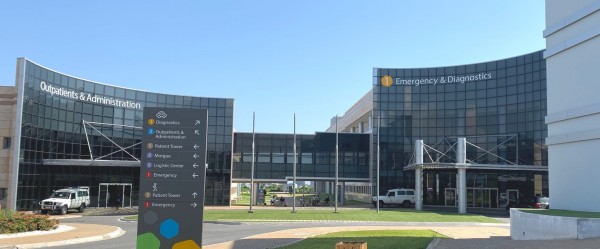
The Health Economist further stated that, the challenges that both NPP and NDC will face, if they attempt to implement their manifestos with all the heavy investments, they want to make in building infrastructure will be, lack of appropriate staff, working capital and appropriate business model.
According to the health economist, if University of Ghana Medical Centre (UGMC) is to be operated full capacity, then, the future government will need to have the capacity of the Korle-Bu Teaching Hospital to toll that lane. “UGMC cannot be operated fully without causing some serious challenge at Korle-bu in terms of personnel,’’ he insinuated.
“Where will the specialist come from? UGMC is a cortinari hospital. So, at a normal circumstance, if Korle-bu cannot handle, then you refer to UGMC. UGMC is supposed to be above Korle-bu because, it is supposed to produce or provide cortinary care. So, if Korle-Bu cannot handle, Ridge hospital is secondary, if Ridge cannot handle, ordinarily it will go to Korle-Bu. If Korle-Bu cannot handle, then from the gatekeeper system it will come to UGMC. So, the sort of people there, are high learned specialists that we don’t have many of them in this country.”
In his final remarks, Dr. Gordon Abekah-Nkrumah requested that, plans on how resources will be garnered by the NDC and NPP to implement projects in their manifesto, should be provided to Ghanaians.




